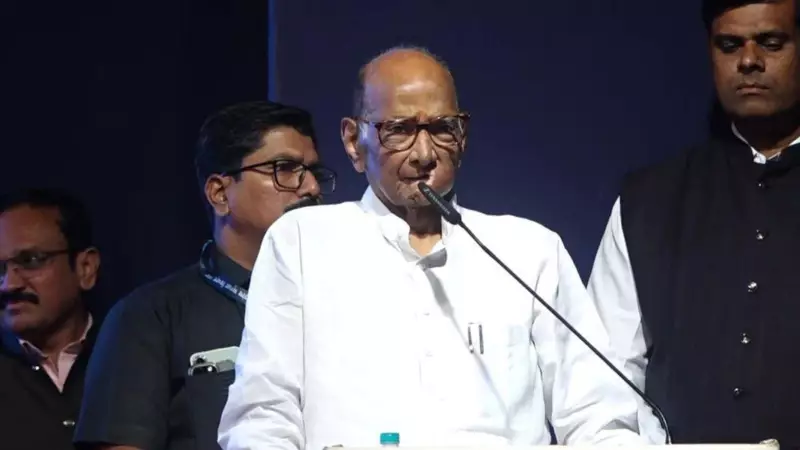
Nationalist Congress Party (SP) chief Sharad Pawar has alleged that the direct transfer of Rs 10,000 into women's bank accounts was a decisive factor in the BJP-led National Democratic Alliance's (NDA) sweeping victory in the Bihar Assembly elections. Pawar raised serious concerns about the transparency of the electoral process following the announcement of the results on Friday, November 15, 2025.
Pawar's Allegation and a Warning to the EC
While interacting with reporters in Baramati on Saturday, Pawar stated that his interactions during the polling period revealed an unprecedented level of participation from women voters. He directly linked this surge to the financial benefit they received. "Women participated in the elections in a big way. It means the plan to deposit Rs 10,000 in their accounts has made an impact," Pawar said.
He drew a parallel with similar pre-poll schemes in Maharashtra, such as the Ladki Bahin Yojana, suggesting a pattern. The veteran politician issued a stark warning, stating that such direct distribution of money could severely damage public faith in the electoral system. "If those who are in power decide to face the elections by distributing money, then it will affect the confidence of the people," he cautioned, urging the Election Commission of India (ECI) to look into the matter seriously.
A Look Back at the Bihar Verdict
The election results, declared on November 15, delivered a powerful mandate to the ruling NDA. The alliance secured a commanding 206 seats in the assembly, leaving the opposition Mahagathbandhan far behind with just 35 seats. Pawar's comments suggest that the direct cash transfer scheme was a key element in this massive electoral success, potentially overshadowing other campaign issues.
Fadnavis's Retort: 'Jo Jeeta Wohi Sikandar'
In response to Pawar's allegations, Maharashtra Chief Minister Devendra Fadnavis advised the opposition to engage in introspection rather than making excuses. Speaking to reporters in Nagpur, Fadnavis used the popular phrase "Jo Jeeta Wohi Sikandar" (The one who wins is the emperor).
He defended the government's actions, framing the financial support as public welfare schemes that were appreciated by the voters. "When the opposition party was in power, they too had an opportunity to implement public welfare schemes but they did not do so," Fadnavis stated, adding that the voters in Bihar had simply preferred the NDA's initiatives.
The exchange between the two leaders highlights a growing political debate on the use of government schemes and direct cash transfers immediately before elections, setting a significant precedent for future state and national polls.





